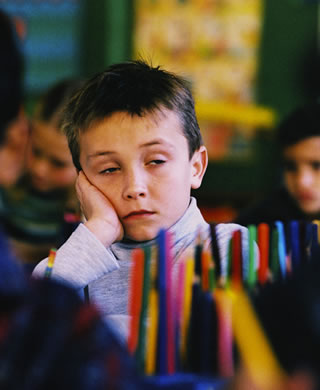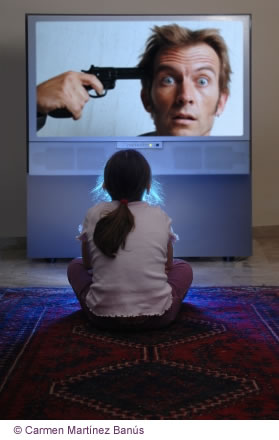Published: January 23, 2011
Grown-Up Problems Start at Bedtime

Getty images
Every parent knows that a tired kid is a cranky kid. Now, scientists are discovering that children with chronic sleep problems are at increased risk for developing a mental illness later in life.
Recent studies show that children who have persistent sleep problems, such as difficulty falling asleep or staying asleep, or not getting enough night-time shut-eye, are more likely later to suffer from depression and anxiety disorders and to abuse alcohol and drugs than kids without sleep problems. The findings add to previous research that has linked children’s sleep problems to a host of issues, including aggressive behavior, learning and memory problems and obesity. Curious? Continue reading
Source: The Wall Street Journal
Published: November 8, 2010
“The results of this study show that fearless behavior in children can be identified and is related to neurological and genetic predisposition. This type of behavior has less correlation – at least in infancy – with standards of educational processes or parenting practice,” says Dr. Inbal Kivenson-Baron, who carried out the study.
Preschool-aged children who demonstrate fearless behavior also reveal less empathy and more aggression towards their peers. This has been shown in a new study that was carried out at the University of Haifa’s Faculty of Education. “The results of this study show that fearless behavior in children can be identified and is related to neurological and genetic predisposition. This type of behavior has less correlation – at least in infancy – with standards of educational processes or parenting practice,” says Dr. Inbal Kivenson-Baron, who carried out the study.
[continue reading…]
Published: October 11, 2010

istockphoto
Children who spend longer than two hours in front of a computer or television screen are more likely to suffer psychological difficulties, regardless of how physically active they are.
The PEACH project, a study of over a 1,000 children aged between ten and 11, measured the time children spent in front of a screen as well as their psychological well being. In addition, an activity monitor recorded both children’s sedentary time and moderate physical activity. The results showed that more than two hours per day of both television viewing and recreational computer use were related to higher psychological difficulty scores, regardless of how much time the children spent on physical activity. [continue reading…]
Published: August 11, 2010
 A great piece in Slate from Alan E. Kazdin and Carlo Rotella
A great piece in Slate from Alan E. Kazdin and Carlo Rotella
You work and work to provide for your kids, and that puts you under a lot of stress. Job insecurity, maybe some mortgage problems, and other common afflictions of the times only increase the pressure. You find yourself taking it out on your family—the kids, your spouse, the cat, any unfortunate who gets in your way. When you’re home and not obsessively checking your e-mail, you lose your temper, you snap and yell and brood, you run alternately too hot (angry and aggressive, spoiling for a fight) and too cold (withdrawn and distant, a forbidding stone-face). You’ll admit that you’re hard to be around, but look, life is tough and you’re knocking yourself out without much in the way of thanks or respite to make enough money to feed and house the kids, and that’s what matters most, right? link to read more
Source: Slate



